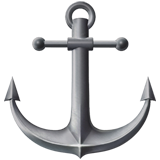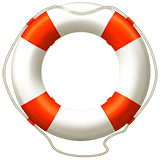Why become a captain

To travel according to your own rules
You choose your own route, decide where to stop and coordinate the actions of your own team.

Unique skills
The world will open up with new winds, currents and many new places that can only be reached by water.

Make new friends
A friendly community of captains and sailing enthusiasts. With every captain released, there are more of us.
How the training is organised



Theory Course
from 300 €
Online, offline at one of Sila vetra offices or a combined theory and practical course on a yacht in a two-week intensive format.
Practice at sea
from 1300 €
7 to 14 days of training on a cruising yacht in the Mediterranean. A team of five and an experienced Sila vetra instructor.
Those who have completed a theory course at another school are also welcome — take our theory exam and join us.
licence registration
250 €
If you pass the practical exam, you will receive a set of ISSA Inshore Skipper and VHF Radio Operator Licences.

Yay, you’re a captain!
This set is sufficient to charter your yacht anywhere in the world except Russia and Japan.

What the ISSA licence does


You can steer a yacht
Once trained, you can steer cruising yachts up to 24 metres in length with a crew of up to 12 people.

You can charter yachts
ISSA licences allow you to charter yachts up to 20 miles offshore worldwide, except Russia, Belarus, USA, Japan and PRC.
Once you have your licence, you can plan your own voyage or take part in wind power adventures with your crew.

You can sailing at night

The ISSA licence entitles you to sailing at night and our instructors will show you how to do it safely.
VHF set
The ISSA licence meets the requirements of the International Certificate of Competence (required in Greece) and together with the licence you get a VHF radio operator’s licence (required in Montenegro, for example).

Licence is permanent
Unlike other international yachting licences, ISSA licences do not need to be renewed — with regular practice it is assumed that yachting knowledge will stay in your head forever.
What you will learn on the theory course

The structure of the boat
From the very first lesson you will learn what all the main parts of a sailing boat are called, what they are for and how they work.

Radio communication
You will learn the basic rules of using a radio, how to make a distress call and how to call for help.

Navigation
Learn how to navigate at sea and locate your position without electronic instruments.

Meteorology
We will study the physical processes in the atmosphere that determine the weather.

Voyage planning
We will teach you how to plan your route by following the rules, avoiding obstacles and remembering all the details.

Nautical practice
You’ll learn how to separate from other vessels and deal with difficult situations at sea.
Full course programme

1.
Terminology, classification of sailing yachts, construction of a sailing yacht
We will learn to distinguish yachts by type and class, as well as the basic elements of a yacht.
Sail construction. How a sail works
We will understand what sets a yacht in motion and what its course is relative to the wind.
Anchoring + manoeuvring
The differences between types of anchor, mooring gear and how to manoeuvre a boat under power.
Technical systems
Learn how to use the electronics on the boat, learn more about the engine and how water and gas work.
MPPSS 1
Learn how to understand other skippers on the water without words and know what to do to avoid a collision.
MPPSS 2
Go through each of the rules of the MPPSS. Define what is a safe speed and a safe manoeuvre.
Navigation 1
Understand how to use maps to navigate and locate your own position.
Navigation 2
Classification of beacons and their light characteristics. Find out what navigation marks are.
Navigation 3
Find coordinates and plot a route.
Radio Communication (VHF)
Learn all the rules of radio communication, how to make a distress call, how to respond to a distress call and how to communicate by radio.
Meteorology
We will learn the main characteristics of the atmosphere and how they affect the weather. We will study different types of winds, cyclones and anticyclones.
Planning to go to sea, preparing the boat. Safety
Boat preparation, weather forecasting, crew preparation and rescue techniques.
2.
3.
4.
5.
6.
7.
8.
9.
10.
11.
12.
Select a convenient workout format
FORMAT
Theory: Intensive on weekends

TIME
10:00–18:00
COURSE LENGTH
4 days
COST
FORMAT
Theoretical course

FORMAT
Theory and Practice
TIME

19:30–22:30
COURSE LENGTH
COST
12 lessons
2000 €
COST
On a yacht
340 €
14 days
300 €
A fully immersive programme in the study of yachting. Includes Captains' School theory course






Leave request
Leave your contact details — we will contact you within a day to answer any questions you may have before booking.
What you will learn on the training course

Manoeuvring
We will tell you all about how to set and adjust the sails correctly, and we will study the whole algorithm in sequence

Nautical knots
We will teach you how to tie nautical knots of varying complexity — about ten of which every sailor should know.

Mooring
We will explain how to approach the pier in all weather conditions and even when there is no infrastructure

«Man overboard!»
We will reassure you and explain in detail how to approach a person unexpectedly in the water safely and quickly

Trip planning
Teach you how to plan your route by following the rules, avoiding obstacles and remembering to include all the details

Marine practice
You’ll learn how to properly separate from other boats and how to deal with difficult situations at sea
Full course programme

1.
Study the boat’s technical systems
Learn how to apply theoretical knowledge to a real boat, what to look for when taking delivery and how to brief the crew.
Stern mooring practice
We analyse the algorithm and practise mooring in different conditions.
Mooring practice
We study the skills required for refuelling.
Marina and open sea manoeuvres
Aspects of safe handling. Demonstration of marina and open sea manoeuvres.
Setting sails (jib and mainsail)
Learn the algorithm for setting sails and their optimum setting.
Manoeuvring on different courses (beam, tack, backstay, fording).
We will study the peculiarities of manoeuvring the yacht on all courses to the wind.
Turns to tack, tack to jib, jib to windward
A detailed analysis of the captain’s and crew’s actions when turning.
"Man overboard" element under sail
Learn how to help a person in the water in the quickest and safest way.
2.
3.
4.
VHF radio operation
5.
Rules of use and standard phrases for effective communication.
Navigational Plotting
Plotting a real route on paper charts and making transitions on them.
6.
Positioning by bearing
Learn to find your position without electronic maps or navigation equipment.
Yacht Etiquette
7.
How to behave in a marina, how to communicate with marina staff and crews of other yachts.
Anchoring
Learning how to choose your anchorage and how your crew can help you.
8.
Mid-Mediterranean anchorage with a return to shore
We discuss the details of the wilderness mooring. We drop the anchor and moor the stern to the shore.
9.
10.
11.
12.
13.
14.
Route crossing (including night crossing)
How to calculate fuel and food, route and time and how to navigate at night.
15.
Select a convenient training format
FORMAT
Beginners

on a yacht
10 days
COST
FORMAT
Amateur

FORMAT
Theory and Practice

on a yacht
COST
7 days
2000 €
COST
on a yacht
1500 €
14 days
1300 €
A fully immersive programme in the study of yachting.
The best option after the theory exam. Admission to practice - successful completion of the theory exam.
A course for those who have travelled on yachts before. Admission to practice - successful completion of theory

Leave request
Leave your contact details — we will contact you within a day to answer any questions you may have before booking.
If you successfully complete the internship, you’ll receive two licences — an inshore skipper’s licence and a VHF radio operator’s certificate — required in some European countries. The set of documents costs an additional 250 euro.

What is included in the price
— Accommodation in a double cabin (we live and cook on the boat).
— Services of a professional skipper-instructor.
— Insurance of the yacht.
— Mooring in a home marina.
— Bed linen.
— End cleaning.
— Services of a professional skipper-instructor.
— Insurance of the yacht.
— Mooring in a home marina.
— Bed linen.
— End cleaning.
Additional charges
— Air travel.
— Travel to marina.
— Expenses on yacht (food, diesel and parking) - approximately 300−350 euros per week per person.
— Rights in case of successfully passing the exam.
— Travel to marina.
— Expenses on yacht (food, diesel and parking) - approximately 300−350 euros per week per person.
— Rights in case of successfully passing the exam.
Meet the instructors
We have super experienced instructors, champions and masters of the sport, who are happy to teach you everything they know.

Vladimir Ganson
Experienced instructor, skipper and ferryman of yachts, crossed the ocean with a team of beginners, reached the category of Yachtmaster Ocean, became the Russian champion in several racing classes.
Olga Kostina
Has been teaching sailing since 2014. Possesses the ability to find an approach to each student. Has sailed more than 10 thousand miles in the waters of the Mediterranean, Adriatic, Aegean and Tyrrhenian Seas, as well as the Atlantic.
Alexei Tikhonov
Sailboat racer, participant in international competitions and winner of the Moscow Championship in the SB20 class. He has been sailing since the age of 11 and has been teaching sailing since 2009. He has made several ocean voyages in the Atlantic.
Igor Shayuk
Professional sailor. Sailed more than 16 thousand nautical miles and countless seas and oceans. Teaching experience IYT and ISSA since 2012.
We are often asked
Questions department:
What kind of boats can I sail after obtaining an international licence?
Answer Department:
The ISSA Inshore Skipper Licence entitles you to operate a sailing yacht up to 24 metres in length, day and night, up to 20 nautical miles from shore. ISSA International rights do not apply to motorised vessels.
Questions department:
What will I get at the end of the internship?
Answer Department:
If you successfully complete the internship, you will receive two licences — Inshore Skipper and VHF (radio operator licence).
Questions department:
If I already know everything and don’t need the theory, can I do the practical training?
Answer Department:
Yes, you can, but you must first pass the theory exam.
Questions department:
Will the licence I get have an expiry date?
Answer Department:
No, ISSA licences are permanent.
Questions department:
How is the ISSA licence different from other licences?
Answer Department:
It is difficult to explain in two words, so we recommend that you read this article in our magazine.
Questions department:
I would like to get a licence to sail a yacht in Russia. What should I do?
Answer Department:
To get a licence you need to pass the GIMS exam. We recommend that you take the Captains School course — this will give you enough knowledge to pass the exam on your own.







